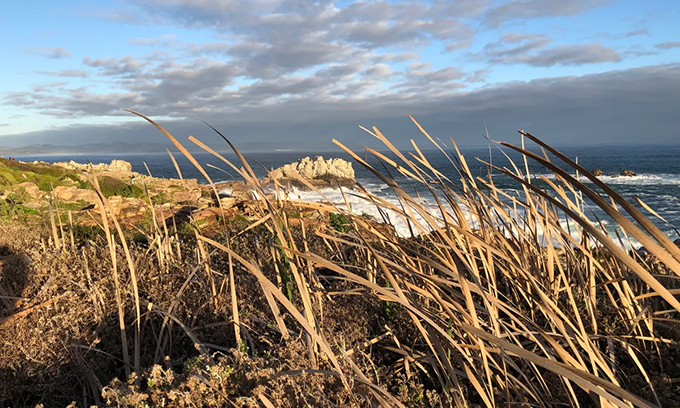Education for sustainable development is attracting more and more attention and has found a place in school programs. It often focuses on individual responsibilities, encouraging young people to change attitudes and behavior, in particular through eco-friendly actions – sorting waste, for example in the canteen.
With such an approach, as observed by Angela Barthes and Yves Alpe, professors of educational sciences, “the question of the responsibility of production systems in environmental damage is little addressed” even though it is decisive. if we want to change the situation on a large scale.
At the border between philosophy, social sciences and didactics, a field of research is developing to allow everyone to better understand all issues relating to the environment , particularly questions of social justice. Let us focus on one of its currents, eco-pedagogy, which offers another approach to citizens.
Ecopedagogy, from Latin America to the United States
Ecopedagogy is a current of educational research that appeared in Latin America in the second half of the 1990s, first in Costa Rica, with Cruz Prado and Fernando Gutierrez , then in Brazil with Moacir Gadotti of the Paulo Institute. Freire. The Charter of Ecopedagogy , in 1999, highlights the need to develop a planetary awareness that is the only way to be able to take ecological challenges into account.
Ecopedagogy is a continuation of the work of Brazilian educator Paulo Freire , which it intends to complete by integrating the environmental dimension. Paulo Freire, particularly in his work Pedagogy of the Oppressed , put forward the idea that education should foster critical social consciousness. This is what he calls consciousness-raising, aimed at raising awareness of social injustices. This gave rise to the development of critical pedagogies.
However, both in Latin America and in the United States, social movements have emerged that have linked environmental issues and social issues. The economist Joan Martinez Alier spoke for Latin America about the ecology of the poor. In the United States, it was the environmental justice movement that highlighted the links between social inequalities and environmental harm.
Articulating anthropocentric ecology and non-anthropocentric ecology
Eco-pedagogy researcher Greg Misiaszek has developed a philosophy of eco-pedagogy education where he establishes a conceptual distinction between the world and the planet.
- The world designates the anthropocentric sphere. The question of the environment is approached from the perspective of human interests. Critical pedagogy and the environmental justice movement are at this level. They are oriented towards concerns of social justice relating to human beings.
- The planet designates the non-anthropocentric sphere, that of non-human living things. It should be noted that ecopedagogy is based on a biocentric ecology, which means that it considers planet Earth as a large living organism. It is based on the Gaia hypothesis .
This first conceptual distinction is linked to another, that between the oppressed and the dominated.
- The oppressed refer to human social groups who suffer from social inequalities. The oppressed are capable of self-reflection and awareness that can lead them to become subjects of social transformation.
- The dominated refer to non-human living things. Unlike human beings, non-human beings cannot produce injustices, but they can suffer from injustices produced by humans.
The articulation of what we call anthropocentric ecology and non-anthropocentric ecology is the challenge of ecopedagogy. The latter thinks of the human sphere as a dimension of the planetary sphere.
Who suffers and who benefits from environmental damage?
Ecopedagogy offers a philosophical and pedagogical reflection on the different levels of justice that are entangled when thinking about environmental issues.
A first dimension consists of affirming that it is human beings as a whole who suffer, for example, from climate change. This is why eco-pedagogy presupposes a planetary consciousness. But we can add that the reflection must also take into account future human generations.
However, it is also possible to reflect on the fact that environmental degradation does not affect all social groups equally. This is what the human and social sciences study under the name of environmental inequalities in relation to social inequalities. The economist Laurent Eloi thus speaks of social-ecology.
These two dimensions must be taken into account, but they nevertheless approach the environmental issue only through the prism of human interests. This is why ecopedagogy integrates animal suffering and the impact on planet Earth, which also suffers as a living organism, into its thinking.
The second perspective of eco-pedagogy reflection is to ask the question of who benefits from environmental degradation. At a first level, it is possible to say that these degradations are made for the benefit of all of humanity. We could even speak of the Anthropocene to mean that it is all of humanity that would benefit from these degradations to the detriment of non-human living things.
But it is also possible to narrow the focus further to focus on what, for example, the geographer Andréas Malm calls the capitalocene, that is to say the impact that the way of life has more specifically upper social classes and the functioning of the capitalist system.
Ecopedagogy is interested in how it is possible to develop citizen awareness of different levels of social and ecological justice. This approach has several issues. For example, it aims to take into account not only the perspective relating to individual consumption patterns but also to look at socio-economic structural elements, highlighting in particular the impact of environmental degradation on the most socially marginalized groups.
Instead of starting from injunctions or instructions for use, ecopedagogy puts citizens at the center of reflection by giving them the means to understand the ins and outs of controversies in ecology. It allows everyone to find their way in the different theses concerning the beings impacted by environmental degradation and the human groups which have the most impact. The objective is to open discussions on the contradictory nature of its different theses or their possible articulation.
Author Bio: Irene Pereira is a University Professor of Education and Training Sciences at the University of Rouen Normandy

